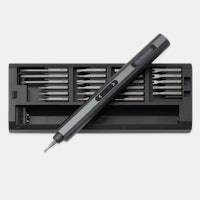Click to view our Accessibility Statement or contact us with accessibility-related questions









Showing 1 of 15 conversations about:
American Knives in 2019
By

reswright

DvlDog3521
6
Sep 8, 2019
I love buying American Made but most of the time, the manufacturer overprices the product. Your post is very well written and we must all come together to set them straight.

reswright
3850
Sep 8, 2019
DvlDog3521I don’t mind paying the American worker’s wages or increased costs for OSHA compliant manufacture as part of that price, and I don’t suspect you mind either. What bothers me is knowing how much of the cost goes straight into executive and shareholder compensation and stays in their pocket instead of being reinvested, while their skilled labor struggles to make ends meet, and industries like knives stagnate.
If the money went to R&D we’d see results, right? Yet all the cool innovation and top quality in our knives comes from custom work these days, and ends up getting patented and licensed by the big companies.
That seems normal to us, but in many industries the innovations come from market leaders. You know how many patents are sourced from Mercedes Benz research? From Apple? From, say, General Atomics? “Most of them” is a fair way to put it. You don’t have dudes cobbling differentials or mobile chips or C4ISR platforms in their basement, and the ones who do, end up selling the rights to a big company outright.
Take mobiles. Where’s the latest hotness in mobile phone technology? It is always coming from a major player. When was the last time you saw a custom made, let alone homemade mobile phone - let alone one you’d rather have over the best production phones on the market? Let’s just say that’s rare and the people who move in those circles know it. But with knives, we cherish our customs and recognize their value, even though many buy them for the sense of prestige they evoke, and/or don’t use them much other than to look at them. Custom blades cost orders of magnitude more money, which has its own impact on scarcity and perceived worth. And that is where new features get innovated, by the custom makers.
I would feel differently if our big knife companies were giving us more for the money, or if they were building American manufacturing infrastructure. They don’t. Are the companies charging top dollar for production knives racking up patents? No. Like I said, they're mostly buying them.
So what do we get for paying such a premium, exactly? R&D is usually one of the first justifications cited for excessive profit taking, so if it isn’t being spent there, where’s that money going if not into new tech? Why’s a company like Spyderco, known for $100-$200 knives in their Made in the USA lines, doing so much more effective R&D than these top end manufacturers like CRK that sells most of theirs for $500 and up? What’s that say? Why are not only the Chinese kicking our knife industry’s ass -- why is it getting stomped by people working in their garages and basement shops?
You are right that it’ll take everyone working together to set the industry and others like it, straight. We used to do that in this country, once - working together, I mean. Surely we haven’t entirely forgotten how. In the meantime one of the best things we can do in the long run for the American worker is to insist on buying high quality gear regardless of where it is made. That’s basically “tough love” for American industrialists. And it’ll work a lot better than just asking nicely. Kinda like that Al Capone line: you can get a little further with a kind word and a gun than you can with just a kind word.
(Edited)

DvlDog3521
6
Sep 9, 2019
reswrightLove the passion, all of it is truth. I love what Kershaw does with their American knives and they tend to be affordable. Ial agree, I don't mind paying workers wages or R&D, it's the greedy execs who don't share the wealth or make things better.

reswright
3850
Sep 17, 2019
DvlDog3521People don't often understand the difference. Many don't realize just how economically different our country became in the 1980s. A lot of people don't realize this but Americans had something like a 90% top marginal income tax rate during WWII, and even up through end of the 1970s the top marginal rate was close to 70%.
You tell a lot of people that, they need to go off and verify it, because it doesn't at all jibe with what they hear about tax rates, right? But it's true.
Funny thing -- the government didn't actually end up of 70% of everyone's income for the year. What it meant at the time was that the largest earners, instead of taking all their unaccounted for revenue as profit the way they do now, tended to plow that money back into their existing infrastructure one way or another - real estate, buildings, assets. That way it was still part of their net worth -- it just wasn't a liquid asset they could take and go spend like paper money, but they weren't short on that. That's how this policy drove reinvestment as a long term strategy for wealth, instead of what we have today, which is ROI. People built their business empires, they built foundries and factories and warehouses, and in the so doing gave the rest of us the means to rise, and they did it all without making the immediate return on investment their focus, and it worked like gangbusters.
Everyone paid taxes. The government had plenty of money for its programs, so people who paid their taxes tended to see something coming back in the way of services. Between decent wages and decent services, people had the means to build stable lives and provide for and raise families in some confidence that if they kept at it and worked hard, they'd keep a good life going.
That didn't happen by accident. That is, in fact, how America built the infrastructure of the superpower it became even as it projected military force around the globe at unprecedented cost.
Then they cut the top tax rate about in half in the early 80s, telling everyone that it was going to lead to an unprecedented economic boom. And it did, just not for most of us in any meaningful way. And, like, the Reagan tax cuts provoke heated discussion to this day, and have different aspects that people want to isolate and discuss, but the short version is, they made a relative handful of people a metric shit ton of money in a relatively short period of time. Even as we speak today, the gap between the income of those people and the income of the rest of us continues to accelerate.
Hasn't stopped doing that for a while. It turns out, they're the ones driving the car.
The thing is a lot of CEOs get that without that middle class investment there is no meaningful wealth for anyone, and it's time for the pendulum to start swinging back the other way, and for more reinvestment instead of profit taking, and regeneration of our working middle class. Unlike the working class, which hasn't the time, the wealthy tend to be astute students of history and economics, and they know where wealth actually comes from, and they know the longer these tensions take to build, the worse they break, and the uglier things end up getting when they do. They know there's a pattern to these things and that those same forces are building right now even as we speak.
They get it. It's just that no one wants to be the one who takes the hit for saying it and for forcing people to come around. They'd rather just wait and make the move with everyone else once it becomes a fait accompli, rather than pick a fight with people who will see it as a literal betrayal of their own kind. It might not be admirable, we might expect these people to take the leadership role in society that they frequently speak of fulfilling instead of hanging back and letting someone else clean up the mess... but as a form of solidarity it is as understandable as the people who respect a picket line.
I think things are bound to change. The only question is, how bad must they first get?
PRODUCTS YOU MAY LIKE
Trending Posts in More Community Picks

Graham88
Completely surprised by the lack of blade diversity here on Drop...
I’ve been a collector of Blades since before my teens, and a retailer coming up on 15… or maybe 20 years. Drop has really been kind of an interesting experience for me, because I do occasionally get to see some unusual tech and sometimes EDC items that otherwise I might not have been aware of. And maybe it’s because I have a deep love of cutlery and bladed weapons, but I find myself trolling through the site looking at it what’s available; and it’s just it’s pretty much the same. And the bladed community here is just always confused me.. every single knife is about the same, they’re almost all drop points and although the handle materials change and brands change.. it’s really just the same knife over and over and over again... occasionally you’ll see a tanto or a slight variant; but rarely… and almost never a serrated blade. And I’m just deeply amazed at this diversion of serrated blades. And I’m just surprised there isn’t more of a request for diversity here.... and I...
Mar 12, 2020
JellyDPhoto
Can we get Sony E-Mount or other mirrorless camera options please..
Would be nice to see some Sony E mount full frame cameras on here. I currently shoot with a A99 and they killed the lense path for better or more option lenses and now is all E-Mount. 🤔
Jan 13, 2020
RayF
There Are Pandas, and Then There Are Pandas.
And this isn't either of them! The Pandas we're talking about here, are watches, not bears. And what got me thinking about them (again) was a link posted this morning by @cm.rook who pointed a few of us to the very attractive (and not terribly priced) Yema "Rallygraph" Panda which, in it's most traditional arrangement, looks like the one on the left, but can also be had in the version on the right: The model on the left is a true Panda, while the model on the right is called a reverse Panda. The reason for that distinction is clear--Panda bears, only come in the first arrangement. Now at this point, everyone should be thinking about the most well-know Panda, The Rolex Panda, which is actually a Daytona, and among Rolex Daytonas, the most famous of which is the Paul Newman Daytona, which was famous first, because it was Paul's, and second because it sold at auction for $17.8 million (US Dollars). The story of that auction is well-known so I'll only...
Nov 8, 2019





